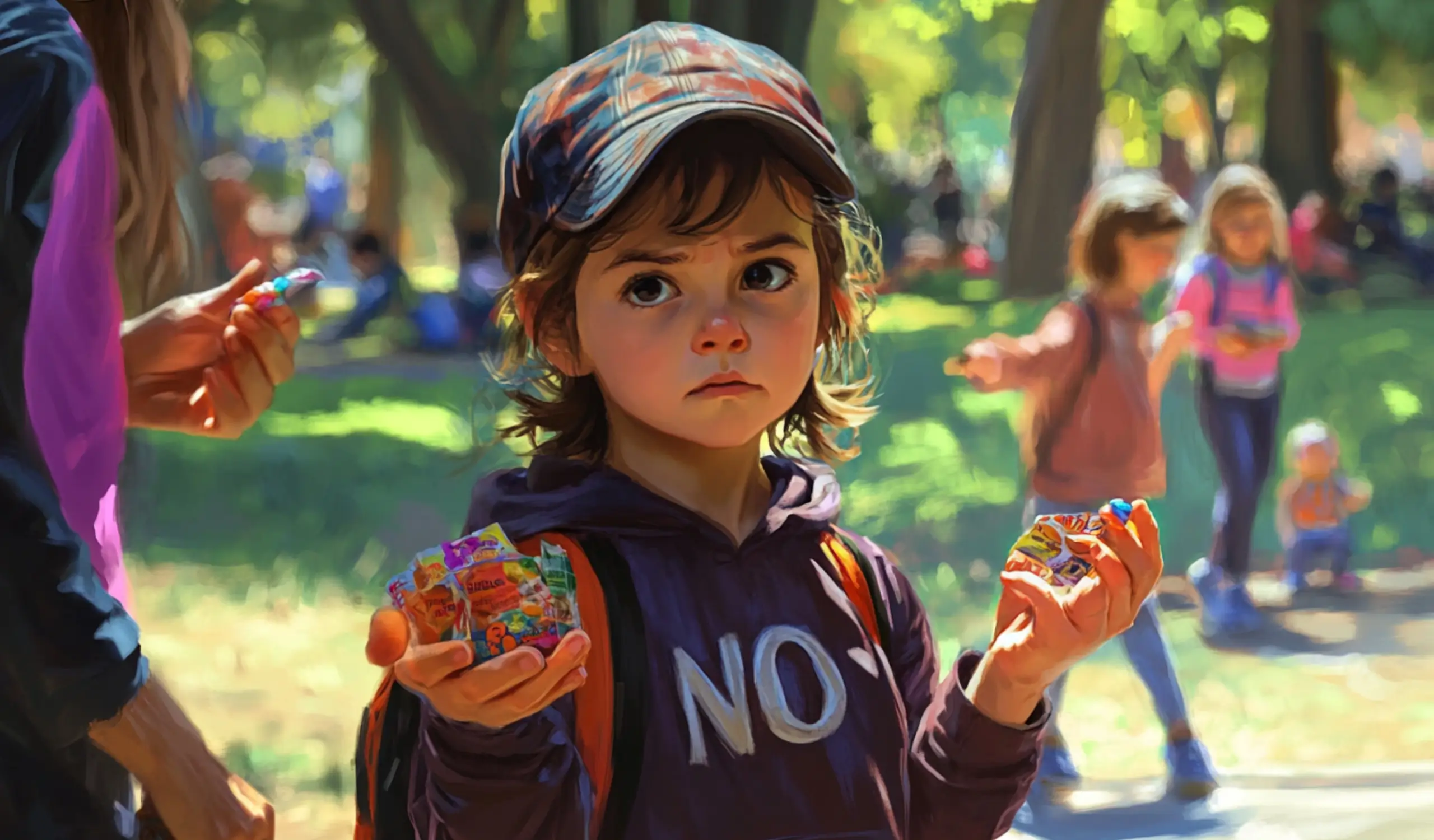As parents and guardians, ensuring the safety of our children is a top priority. The world is filled with opportunities for kids to explore, learn, and grow, but it also comes with its share of risks. From navigating traffic and interacting with strangers to using the internet and playing safely at home, kids face various situations that require them to make smart decisions.
Teaching children essential safety rules empowers them to protect themselves, builds their confidence, and fosters independence. These lessons not only safeguard them from immediate harm but also equip them with lifelong skills to navigate challenges responsibly.
In this blog, we’ll walk you through 10 critical safety rules every child should know. With practical advice, actionable tips, and relatable examples, this guide is designed to help you teach your kids how to stay safe while embracing the joys of childhood. Let’s dive into these essential rules and ensure your child’s well-being both today and in the future.
10 Important Safety Rules for Kids You Should Teach Them
Teaching kids safety rules is essential to ensure their well-being. Below, each rule is explained in detail with a concise description followed by key actionable points in bullet format. Let’s dive into these crucial lessons for your child’s safety.

1. Know Your Full Name, Address, and Contact Information
Every child should know their full name, home address, and at least one trusted adult’s phone number. In case they are lost or in an emergency, this information helps them reach out to responsible authorities or trusted individuals. Repeating this information regularly helps kids retain it. Role-playing scenarios can make learning this fun and effective. This is the foundation of every child’s personal safety.
Key Points:
- Memorize their full name, home address, and phone number.
- Teach them to recite this information clearly.
- Practice scenarios like being lost in a store or park.
- Make learning fun through songs or flashcards.
- Regularly quiz them to reinforce memory.
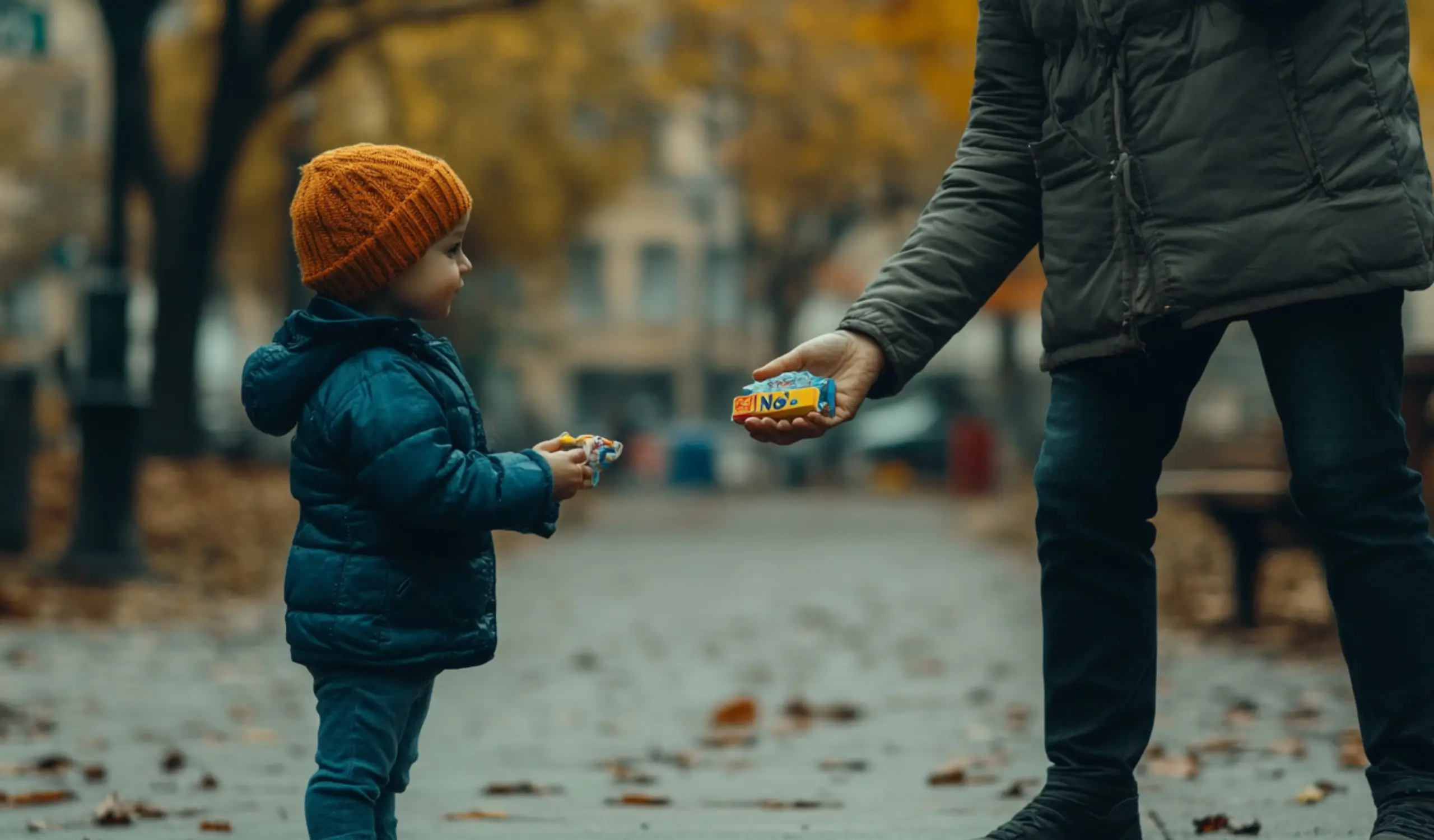
2. Trust Your Instincts and Say “No” to Strangers
Children should feel empowered to say “no” if someone makes them uncomfortable. They should recognize situations where strangers might lure them with gifts or unusual requests. Building confidence in trusting their instincts helps them avoid dangerous situations. Practice real-life scenarios to reinforce this behavior. Teach them to immediately inform a trusted adult about any such encounters.
Key Points:
- Encourage kids to say “no” when uncomfortable.
- Avoid engaging with strangers offering gifts or help.
- Role-play situations to prepare them for real life.
- Teach them to quickly find a trusted adult if needed.
- Emphasize that their feelings and instincts matter.
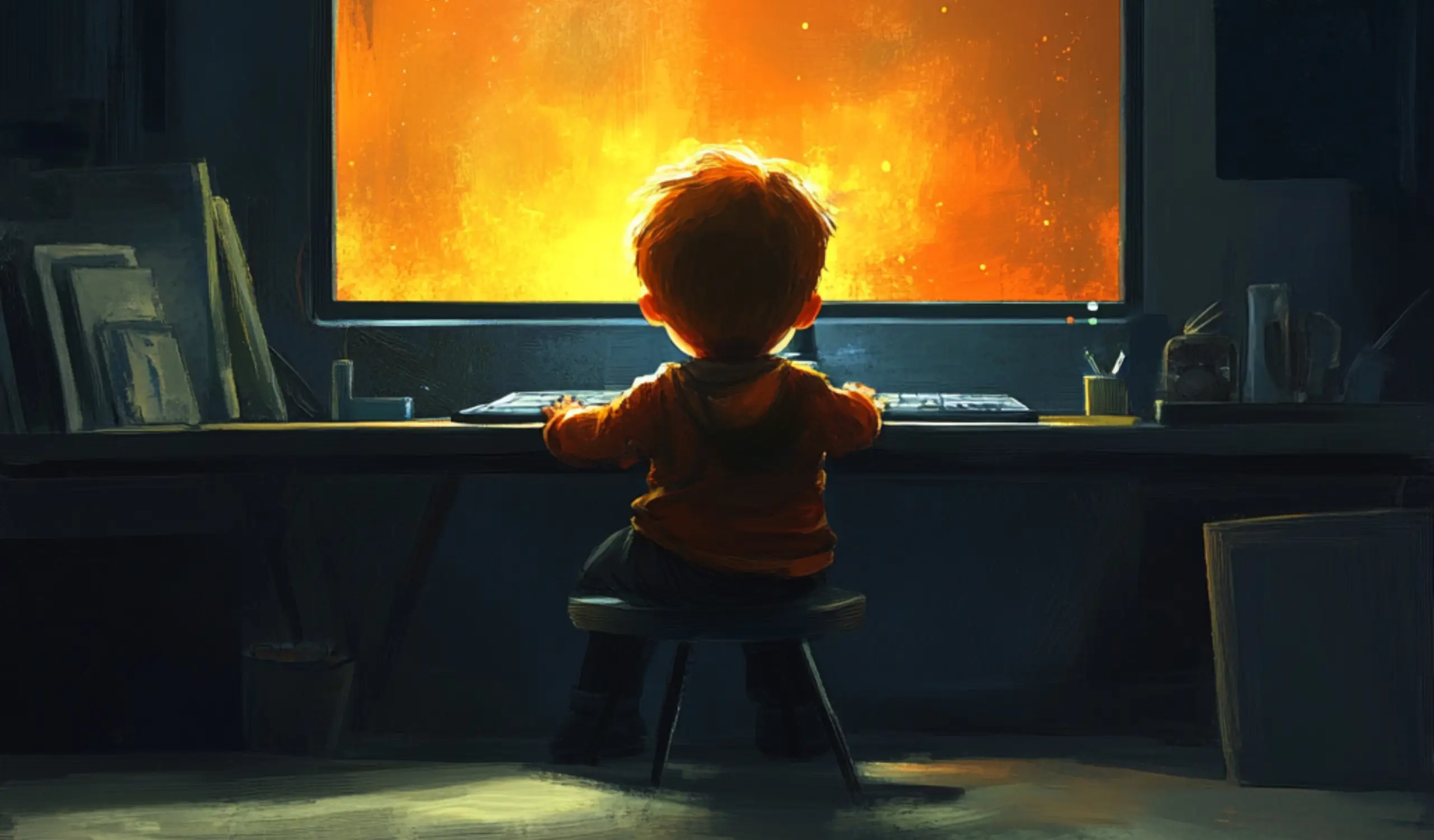
3. Never Share Personal Information Online
In today’s digital world, children must be cautious about sharing personal details like their address, school, or phone number on the internet. Predators and cybercriminals exploit such information. Help kids understand what is safe to share and what isn’t. Use parental controls to monitor their online activities and ensure they only interact on age-appropriate platforms.
Key Points:
- Avoid sharing personal details online.
- Understand the dangers of oversharing.
- Use strong parental controls for online safety.
- Regularly discuss safe and unsafe online behavior.
- Monitor their interactions and digital footprint.
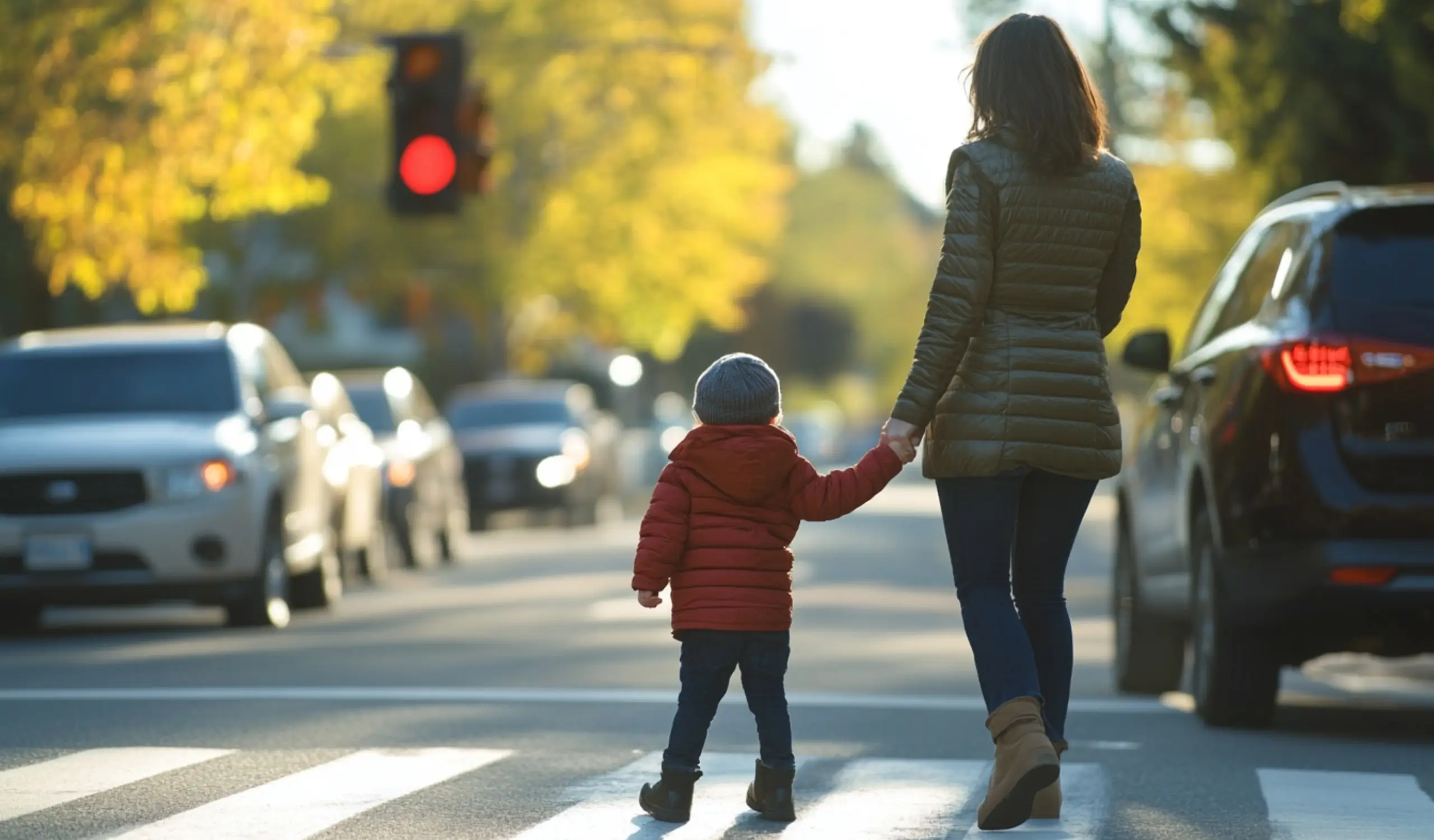
4. Look Both Ways Before Crossing the Street
Road safety is a fundamental rule that every child should master. Teach kids to stop, look both ways, and listen for vehicles before crossing a street. Explain the significance of using crosswalks and pedestrian signals. Practice crossing streets together until they feel confident doing it independently. This habit can prevent common road accidents.
Key Points:
- Stop, look both ways, and listen before crossing.
- Use designated crosswalks and pedestrian signals.
- Walk with a trusted adult until confident.
- Explain the dangers of running into the street.
- Reinforce safety through practice and observation.

5. Always Inform an Adult Before Going Anywhere
It’s vital for kids to let a trusted adult know where they are going and when they will return. This ensures someone is always aware of their location in case of emergencies. Encourage open communication and avoid making them feel guilty for asking permission. Use tools like family calendars to make tracking easy.
Key Points:
- Always tell an adult where they’re going.
- Inform someone if plans change unexpectedly.
- Use apps or calendars to track outings.
- Encourage open communication without guilt.
- Teach them the importance of accountability.

6. Avoid Playing With Fire or Sharp Objects
Children are naturally curious, but this curiosity can lead to accidents with dangerous items like matches, lighters, or knives. Explain the potential dangers of handling these objects and set strict rules about their use. Always keep hazardous items out of their reach and supervise closely during activities like cooking or crafts.
Key Points:
- Don’t play with matches, lighters, or sharp objects.
- Explain the risks of fire and injuries.
- Store hazardous items out of reach.
- Supervise closely during high-risk activities.
- Teach safe handling practices for age-appropriate tasks.

7. Don’t Keep Secrets From Parents
Fostering open communication is essential for building trust. Teach children the difference between “good secrets” (like a surprise) and “bad secrets” (like someone asking them to hide something wrong). Assure them they can share anything with you without fear of punishment. This approach prevents potential harm or abuse.
Key Points:
- Explain the difference between good and bad secrets.
- Assure kids they won’t get in trouble for speaking up.
- Encourage open communication without judgment.
- Reinforce trust by listening attentively.
- Regularly remind them to share concerns with you.

8. Memorize Emergency Numbers
Kids should know how to dial emergency services like 911 and what information to provide. This skill is crucial in case of fires, medical emergencies, or personal danger. Regularly practice mock drills at home to help them feel confident in handling such situations.
Key Points:
- Memorize emergency numbers (e.g., 911).
- Teach them how to dial and explain emergencies.
- Practice mock emergency scenarios.
- Instruct them to stay calm while speaking to operators.
- Reinforce the importance of knowing their address.
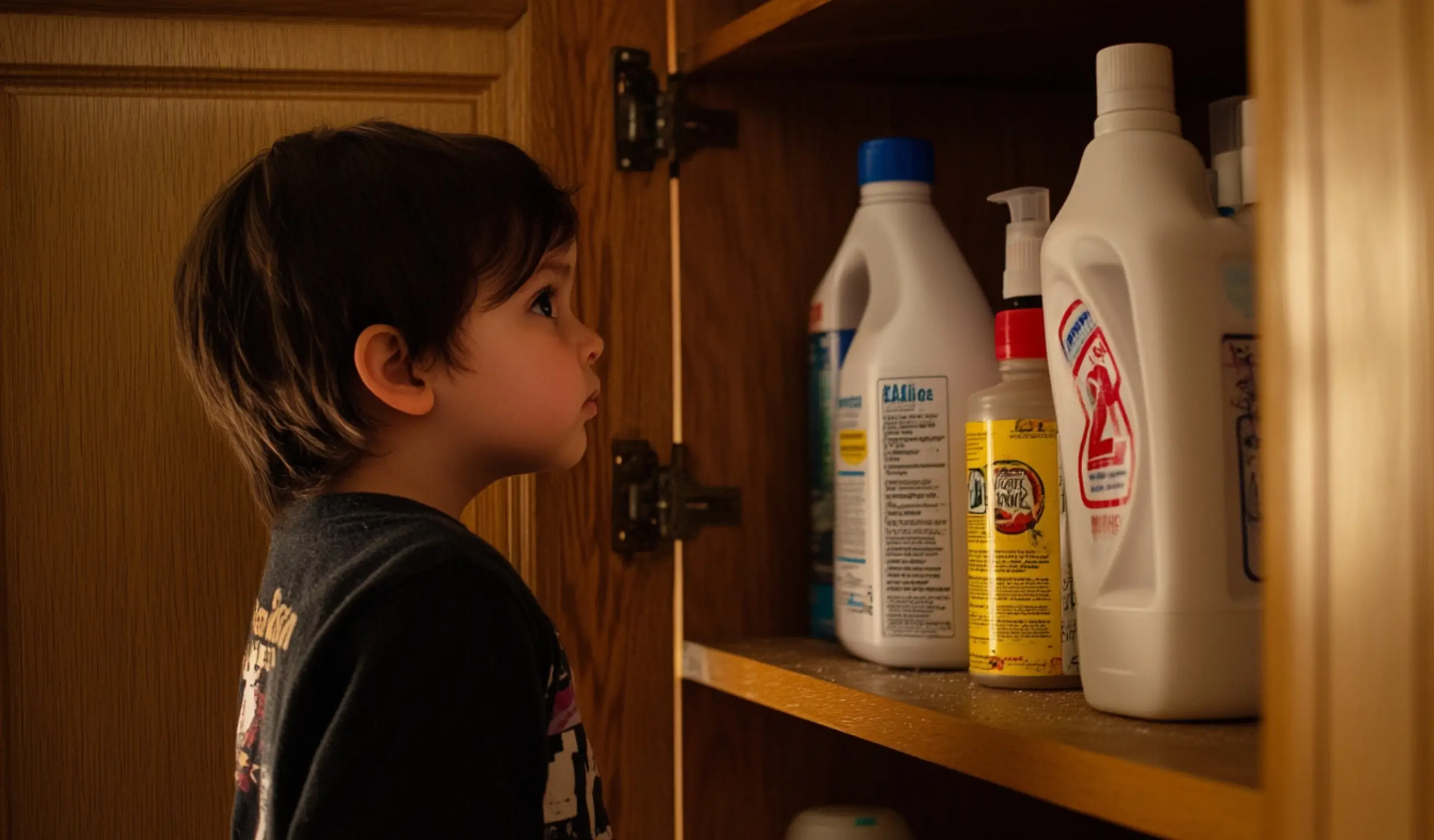
9. Recognize Dangerous Signs at Home
Children should be able to identify hazardous symbols and understand why certain items are off-limits. Teach them to avoid touching chemicals, playing near electrical outlets, or misusing household appliances. Use clear and engaging methods, like visual aids or games, to explain these dangers.
Key Points:
- Teach kids to recognize hazard symbols.
- Explain the dangers of chemicals and appliances.
- Use childproof locks on dangerous areas/items.
- Make lessons engaging with visual aids or games.
- Supervise kids to ensure they follow safety rules.

10. Stick to Safe Areas and Avoid Risky Play
Whether at home or outside, kids should play in safe, designated areas. Explain the dangers of wandering off, climbing unstable structures, or playing near water without supervision. Setting clear boundaries helps children understand what is safe and what isn’t.
Key Points:
- Stick to safe play areas with clear boundaries.
- Avoid risky activities like unstable climbing.
- Supervise kids near water or dangerous locations.
- Set clear rules and reinforce them regularly.
- Teach the importance of staying within sight.
By teaching these safety rules, you’re equipping your child with the knowledge to navigate the world confidently and responsibly. Reinforce these lessons regularly to ensure they become lifelong habits.
Conclusion
Teaching kids essential safety rules isn’t just about preventing accidents—it’s about empowering them to navigate the world with confidence and responsibility. By introducing these 10 important safety lessons, you’re providing your child with the tools they need to make smart decisions, avoid dangerous situations, and seek help when needed.
Remember, safety education is an ongoing process. Reinforce these rules regularly, model safe behavior, and maintain open communication to build trust. With your guidance, your child will grow up feeling secure, prepared, and capable of handling challenges independently.
By taking the time to teach these safety principles, you’re not just keeping your child safe today—you’re equipping them with the skills they need for a lifetime of well-being. Prioritize their safety, and watch them thrive with confidence in a safe and supportive environment.

